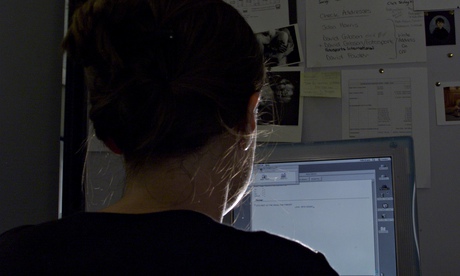
What is it exactly that we think we are missing so much that it requires an immediate response, as if any delay will evaporate the importance of the moment, never mind the message?
According to American Gloria Marks, professor of interactive and collaborative technologies, the average worker checks his or her emails an extraordinary 74 times a day. (That hardly leaves any room for a quick burst of Asos shopping for the winter wardrobe in the boss's time or a dive into YouTube for a fix of fluffy dogs in leotards performing triple cartwheels.) Jennifer Deal, at the US Centre for Creative Leadership in San Diego, California, says the average smartphone-owning, white-collar worker is at it, emailing away for 13.5 hours a day, and a third can't even resist when they are eating a meal.
Once hooked, it is undoubtedly addictive. Spam, phishing, spoofs, offers, special deals and even the occasional message from work or a friend – that's part of today's email way of life. Somebody, somewhere is always eager to communicate with you. Sometimes, they even know your name. But this still doesn't explain what it is that's in us that means that we aren't prepared to wait, even for a nanosecond.
In the olden days, when carrier pigeons knew their worth, and communication was all done by letter, perhaps Jane Austen, say, tore down the garden path to rip the letters out of the postman's hands, flying back into the house, pen and paper in hand, already composing a speedy response before the tea has even had time to brew.
But that's nothing like the current fever. It's as if we are racing against our own mortality when after all it's only an email.
The Germans don't have an answer but they do have a solution. Daimler now has a "holiday mode" setting for out-of-work-hours emails. Once triggered, it offers the email sender an alternative person to contact and then – and this requires nerves of Stahl – the email is destroyed. Volkswagen and Deutsche Telekom have also adopted the scheme.
What hasn't been revealed is whether such extreme brutality comes with post-traumatic stress disorder counselling for all those needy, white-collar, alpha professionals who, returning from holiday, surely see an empty email box as a sign that they are no longer required/important/indispensable.
Worse still, the time – those 13-plus hours – previously filled by answering or deleting 230 emails, especially those from work colleagues sitting two feet away, has to be filled. But by what exactly? Work? Surely not.
In the 1970s, we were all promised that by the 21st century, in the prosperous parts of the globe, we would be employed for the equivalent of a month less a year, and the working day would grow shorter, as robots did the hard graft and humans managed the thinking.
What nobody then could predict was the way in which email and the pathological drive to connect with anyone at any time – but usually very, very often – would expand, not contract, the hours of graft. Unless that is, you're one of those man enough to go for the "holiday mode". That's courage.

